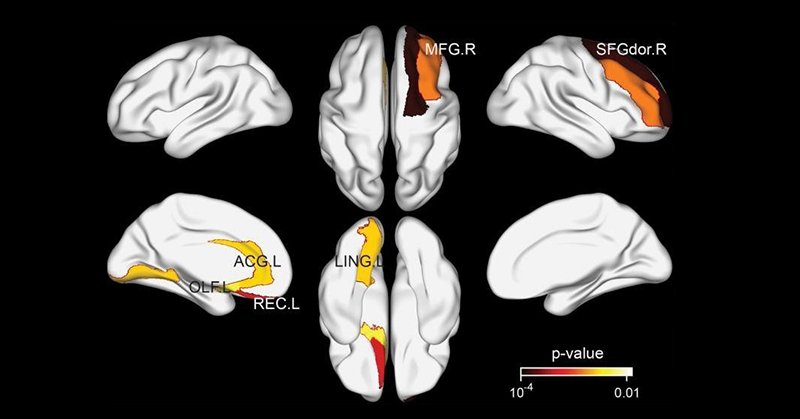For all the tea lovers out there, get ready to be excited!
Recent research published in the journal Aging suggests that regular tea drinkers have a more efficient brain structure, which may help protect against cognitive decline such as dementia and Alzheimer’s disease [1]. While the study was small, the findings add to a growing body of evidence supporting the positive effects of tea on both the mind and body.
The study focused on green, black, and oolong tea, highlighting their potential health benefits. Before diving into the specifics, it’s important to note that when we refer to “tea” in this article, we are specifically talking about tea derived from the Camellia sinensis plant.
What the Research Revealed
Researchers conducted MRI and neuropsychological testing on 36 adults aged 60 or older over a three-year period from 2015-2018. The results showed that individuals who consumed green, oolong, or black tea at least four times a week had improved brain connectivity.
One of the study authors likened this improved brain organization to a well-organized road system, where information processing becomes more efficient with structured connections between brain regions. While the study didn’t prove causation, it suggests that regular tea consumption may support cognitive performance through brain organization.
More research is needed to fully understand the effects of tea on the brain and its role in cognitive function during aging.
Why Tea is Beneficial
Tea contains polyphenols, which are antioxidants known to prevent various diseases such as heart disease, cancers, and neurodegenerative conditions. Additionally, tea is rich in vitamins, minerals, and amino acids that support overall health and cognitive function [2,3].
Other Studies Supporting Tea’s Benefits
Research has shown that tea consumption from the Camellia sinensis plant can lower stress hormones, reduce the risk of depression and dementia, and provide numerous health benefits [4]. Let’s explore the specific benefits of black, green, and oolong tea based on existing research.
Black Tea
Black tea has been associated with improved cognitive processing, memory, lower blood pressure, reduced risk of stroke, and potential protection against certain cancers [5-8].
Green Tea
Green tea is known for reducing anxiety, enhancing memory, lowering cardiovascular disease risk, aiding in weight management, and reducing the risk of certain cancers [9-13].
Oolong Tea
While research on oolong tea is limited compared to green and black tea, studies suggest that oolong tea consumption may lower cognitive impairment risk, support cognitive performance, and contribute to cognitive protection [14-16].
Should You Incorporate Tea into Your Routine?
Although more research is needed, the existing evidence supports the health benefits of tea consumption. If you enjoy black, green, or oolong tea, drinking it regularly may promote brain health and protect against cognitive decline. Just be mindful of the caffeine content in tea, especially if you are sensitive to its effects!






